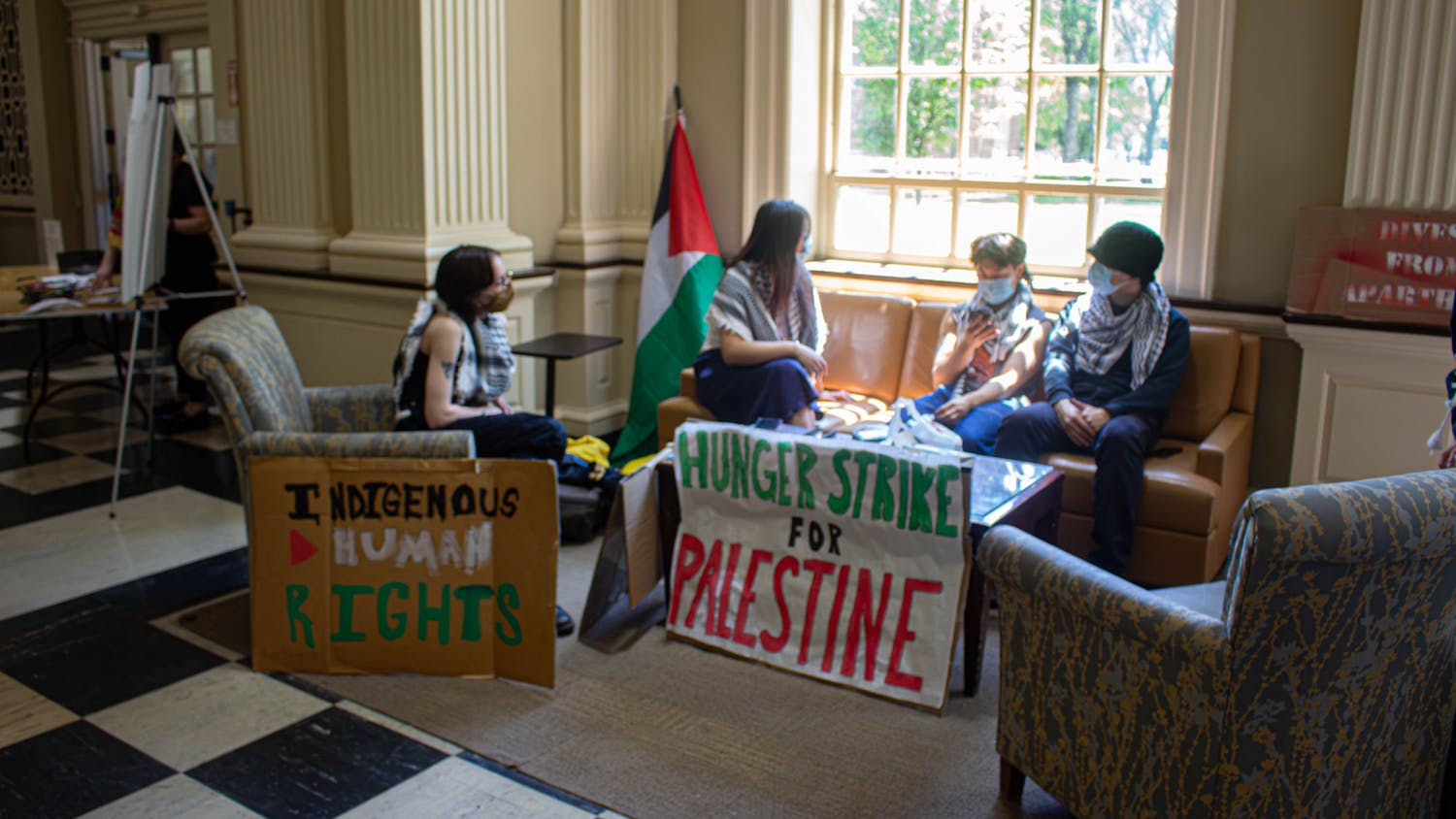Voting on the Alumni Governance Task Force's controversial new proposed alumni constitution -- which began Sept. 15 -- ends today, with voter turnout already promising to break past records of alumni participation.
TrueBallot, Inc., the company handling the election, reported that electronic and telephone voter participation among all living alumni hit 26 percent at the time of its last assessment. Paper ballot participation cannot be gauged until those votes are unsealed and counted on Nov. 1, but paper ballots accounted for 50 percent of the trustee vote in 2004 and 40 percent of the trustee vote in 2005.
The Office of Alumni Relations originally cited 30 percent voting participation as its admittedly lofty goal this summer, given the fact that participation in alumni trustee balloting has averaged 22 percent over the last decade and hit 24 percent in the two most recent, and more controversial, elections.
Director of Alumni Leadership Patricia Fisher-Harris '81 estimated that participation will surpass this once-ambitious goal. She attributed increased alumni involvement to the high level of attention given to the proposed constitution. She also noted the aggressive campaigning and polling efforts by organizations supporting or opposing the proposal.
"Voter turnout in this election will likely exceed our goal of 30 percent," Fisher-Harris said. "Why? Alumni Relations has worked hard to build awareness and get out the vote through mail, e-mail, website, blog and student phonefests. In addition, independent alumni groups on all sides of the issue have developed their own campaigns through these same media."
Fisher-Harris referred to alumni groups like Dartmouth Alumni for Common Sense, which advocates in favor of the constitution's passage, and the Hanover Institute and Supporters of a Democratic Dartmouth, which oppose the proposed amendments. The groups attempted to recruit votes with various mail campaigns, paid advertisements, websites and telephone surveys.
Vice President for Alumni Relations David Spalding '76 also linked high alumni participation, as well as recent alumni objections to push-polling -- in which political operatives call voters asking for their opinions, but really aim to change their votes -- to open campaigning.
Open campaigning, which has not been allowed in past trustee elections, enables candidates to actively campaign and place advertisements.
"There are a number of people who have called for open campaigning," he said. "That's certainly what's been achieved this time. Presumably this would lead to a better educated voter turnout. [Trustees] Todd Zywicki '88 and Peter Robinson '79 in particular have called for open campaigning and this is what that looks like."
Spalding, who said that the Alumni Relations office has received several complaints of repeated invasive phone calls and push-polling by telemarketing companies these groups have hired, noted that such aggressive tactics are another result of the campaigning process.
"I guess it's to be expected that people are going to find themselves unhappy with some aspects of open campaigning," he said.
Director of Communications for Alumni Relations Diana Lawrence compared the "noise" she said is surrounding the vote to that of a large contentious election.
"This election has become a very political election," she said, "and those are the types of tactics that are used in state, local and national elections -- and they've migrated into the Dartmouth alumni constitution vote."
Despite such conscious efforts to get out the vote, this election's high participation is still worth noting, Spalding asserted, because of the complexity of the issue at hand.
"It felt like 30 percent would be a stretched goal, especially on an issue like this," he said. "The issue of voting on a trustee is pretty straightforward and the issue of this constitution and its amendments is pretty complicated, so I'm glad so many Dartmouth alumni took the time to figure out the issue."
Lawrence hypothesized that Dartmouth's emphasis on tradition and its strong connection to its students and alumni added to such heavy alumni concern with the constitution.
"I personally think Dartmouth is special because so many alumni participate in the life of the College," she said. "I'm not surprised that this many alumni are choosing to register their choices. We're very excited to be hearing from this many alumni -- it's an important vote."
Often national media outlets also represent Dartmouth as a fairly conservative school deeply rooted in tradition with a loyal alumni network, which has undoubtedly contributed both to the national interest and to the vocal alumni reactions to the constitution; The Wall Street Journal and New York Times have both published pieces about the issue.
Spalding compared Dartmouth's high alumni involvement to that of other schools, noting that Harvard University's recent alumni election, which consisted of both a person and document vote, only achieved a participation level of approximately 19 percent.
"It is always a pleasure to beat Harvard," he said.
Voting ends today at midnight.Lawrence said the results are likely to be released Thursday, as paper ballots are counted starting Wednesday.
"There's no way to tell how many paper votes are coming in. It's like Al Capone's vault," she said. "We don't know what's inside."



